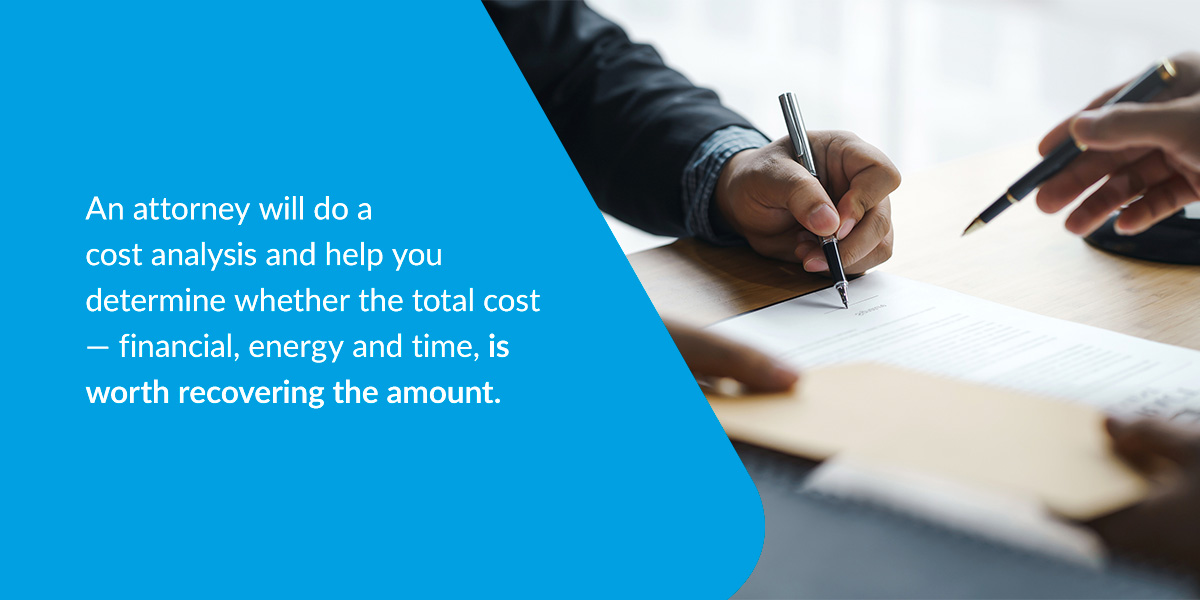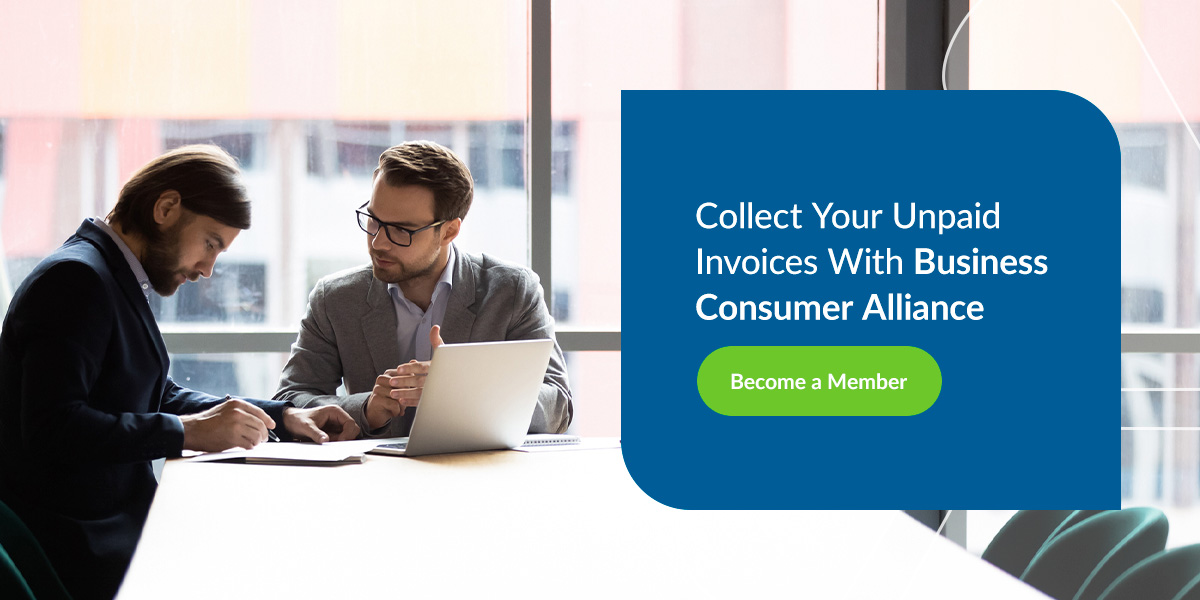
How to Manage Unpaid Invoices From Clients
Once you've rendered services for a client, you expect to receive payment on time. Sometimes, the payment deadline comes around and you're still waiting to get paid. Late payments can result in dips in cash flow, throw off your projections for the month, and make it difficult to pay for operational expenses. Recovering your overdue invoices quickly is essential to get your cash flow back on track.
The Importance of Managing Unpaid Invoices
One or two unpaid invoices may not seem like a big deal — however, they can significantly impact your finances. Unpaid or past-due invoices affect your cash flow, which can make it challenging for you to pay salaries and overhead costs and invest in business growth.
If you're already operating on thin margins, the impact of unpaid invoices can send your business over the edge. One overdue bill can snowball quickly and turn into multiple unpaid invoices. When you have multiple invoices to follow up on, you spend more time chasing bills instead of concentrating your energy on growing your business.
Strategies for Managing Unpaid Invoices
Overdue invoices slow down your cash flow and can make it challenging to run your business. Ultimately, your goal is to get customers to pay the money they owe but to do so in a way that helps you to maintain your relationship with them.
1. Use Payment Reminders
Sending a reminder one to two weeks before the payment is due is an effective way to get clients to pay on time. It helps eliminate the possibility of overdue invoices. You can automate these reminders and make the process more efficient by using invoicing software.
If the due date has passed and you are still waiting to receive payment, it's time to send a past-due invoice reminder. It's important to keep this reminder friendly and non-confrontational — there are several reasons why a customer may be late. Ultimately, it's wise to protect the relationship. Stress the urgency of the matter while maintaining a friendly tone. At this point, you can remind your customer of any late fees or penalties in the initial agreement.
2. Offer Payment Plan Options
If your customer lacks funds, consider allowing them to make payments over time — they might make an initial payment upfront and then pay the rest in small increments over a specific period. You'll help to ease the financial burden holding back your client from paying. Offering flexible payment options also makes it easier for customers to make payments.
If you don't already, consider allowing credit card payments. This option can make it easier for clients who don't have cash on hand to pay their invoices. Even though credit cards come with a small fee, it costs you less than the inconvenience and time you'll spend chasing payment from clients.
For more convenience, you can offer multiple payment methods, such as ACH and wire transfers. Having various options can eliminate the excuse of payment process hurdles.
3. Charge Late Fees
Imposing a late fee on outstanding invoices may incentivize clients to make payments on time. When you charge a late fee, you must make your customers aware of the late fee before they buy and stipulate the amount on the invoice under the payment terms section. Some businesses charge the late fee as a percentage of the invoice, while others charge a flat fee.
4. Take Legal Action

When the outstanding amount is large enough, consider taking legal actions such as hiring an attorney or taking the client to small claims court. An attorney will do a cost analysis and help you determine whether the total cost — financial, energy, and time, is worth recovering the amount. If the client refuses to pay you or a collection agency, consult your lawyer to understand what legal action you can take.
5. Incorporate a Third Party to Manage Overdue Invoices
Sometimes, managing unpaid invoices requires outside help. A third party sends a letter of demand to clients that can help spur them on to make payment. It also saves you time and resources you would spend chasing late payments.
Tips to Proactively Manage Customer Invoices
Going after late payments can be tedious and costly — the great news is there are ways to manage your invoices to avoid them becoming overdue in the first place.
1. Know Your Customers
The financial health of your business relies on customers paying on time. Before taking on a new client, run a credit check. Consider offering shorter credit terms if you discover a history of bounced checks and late payments. You can also request trade references to check for their payment history.
Keep a close eye on client accounts. Your software should flag late payments so you can attend to them promptly and communicate with your clients effectively without jeopardizing your relationship.
2. Agree on Clear Payment Terms and Policies
Set clear payment terms and policies and outline them in your agreement. Your customers must understand the payment timelines, penalties for late payments, interest that accrues on your invoices, and any other associated policies. Your customer should sign the agreement to minimize any confusion and protect both parties.
3. Send Invoices Promptly
If you want to get paid on time, send invoices promptly after delivering the service or product. Customers are more likely to pay on time while the order is still fresh in their minds. Double-check the invoices before following up. Sometimes, an error like sending the invoice to the wrong person, an incorrect email address, or a wrong payment date may be the reason for the delay. Automating your invoicing software can help eliminate inconsistencies and errors.
4. Offer Early Payment Discounts
An early payment discount can encourage customers to pay their invoices before the due date. For example, consider offering your clients a 2 discount if they pay their invoice 10 days before the 30-day credit period ends.
Collect Your Unpaid Invoices With Business Consumer Alliance
Unpaid invoices have a significant impact on your business. You spend time, energy, and finances chasing customers instead of spending resources on growing your business. While there are measures you can take to prevent unpaid invoices, working with the right company that can collect unpaid invoices for you streamlines your processes and creates much more efficiency.
When you become a BCA member, you gain a trusted partner to help you recover your debt by communicating with clients on your behalf. We chase late payments so you can focus on your business. Become a BCA member today and recover late payments with powerful resources!
